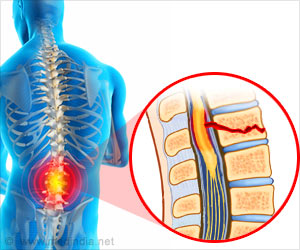Is Alzheimer's disease more genetic than previously believed? New genetic insights into Alzheimer's could impact diagnosis and treatment.
- APOE4 gene mutation may play a more significant role in Alzheimer’s disease than previously thought
- Individuals with two copies of APOE4 gene have a substantially higher risk of developing Alzheimer’s pathology at a younger age
- The reclassification of Alzheimer’s as genetically induced may influence treatment approaches and clinical trial designs
The APOE4 gene mutation, dubbed the "Alzheimer's gene," isn't just a double-edged sword; it's more like a genetic Rubik's Cube, complicating the puzzle of Alzheimer's risk and treatment. #alzheimers #genetics #medindia’
Is Alzheimer’s Disease a Genetic Condition?
According to medical experts, the new categorization would elevate this type of Alzheimer’s to one of the world’s most frequent genetic conditions. "This reconceptualization that we’re proposing affects not a small minority of people," said Dr. Juan Fortea, lead author of the study and head of the Sant Pau Memory Unit in Barcelona, Spain. "Sometimes we say that we don’t know the cause of Alzheimer’s disease," but he stated that roughly 15-20% of cases "can be traced back to a cause, and the cause is in the genes."The hypothesis revolves around a gene mutation known as APOE4. Scientists have long known that inheriting one copy of the variation raises the risk of developing Alzheimer’s and that persons who inherit two copies, one from each parent, have a far higher risk. The current study, published in the journal Nature Medicine, looked at data from over 500 patients who had two copies of APOE4, a substantially larger sample than prior studies. The researchers discovered that almost all of those patients developed the biological pathology of Alzheimer’s, and the authors conclude that two copies of APOE4 should now be considered a cause of Alzheimer’s rather than a risk factor (1✔ ✔Trusted Source
APOE4 homozygozity represents a distinct genetic form of Alzheimer’s disease
Go to source).
Evidence that Alzheimer’s Disease Begins at a Young Age
According to the study, the patients developed Alzheimer’s pathology at a rather young age. By the age of 55, more than 95% had biochemical markers linked with the illness. By the age of 65, almost everyone had abnormal amounts of amyloid, a protein that builds plaques in the brain and is associated with Alzheimer’s disease. Many persons with the APOE4 mutation began to experience cognitive deterioration at the age of 65, which is younger than most people without it."The critical thing is that these individuals are often symptomatic 10 years earlier than other forms of Alzheimer’s disease," said Dr. Reisa Sperling, a neurologist at Mass General Brigham in Boston and the study’s author. She continued, "By the time they are picked up and clinically diagnosed because they’re often younger, they have more pathology."
Alzheimer’s Dementia is more Common in People with APOE4 Mutation
People with two copies, known as APOE4 homozygotes, account for 2-3% of the general population but 15-20% of those with Alzheimer’s disease, according to researchers. People with one copy account for 15-25% of the general population and around 50% of Alzheimer’s dementia sufferers. The most prevalent version, known as APOE3, appears to have a neutral influence on Alzheimer’s risk. Approximately 75% of the general population carries one copy of APOE3, with more than half having two copies.How Alzheimer’s Treatment Could Change for People With Two Copies of APOE4 Gene
Alzheimer’s researchers who were not involved in the study stated that designating the two-copy syndrome as genetically driven Alzheimer’s might have far-reaching consequences, including boosting medication development beyond the field’s recent emphasis on treatments that target and eliminate amyloid.Dr. Samuel Gandy, an Alzheimer’s expert at Mount Sinai in New York who was not part of the study, stated that individuals with two copies of APOE4 had significantly higher safety concerns from anti-amyloid medications.
When the FDA authorized the anti-amyloid medicine Leqembi in 2023, it mandated a black-box warning on the label stating that the prescription can cause "serious and life-threatening events" such as swelling and bleeding in the brain, particularly in those who had two copies of APOE4. Some treatment clinics have decided not to provide Leqembi, an intravenous infusion, to such individuals.
Dr. Gandy and other researchers believe that categorizing these patients as having a separate hereditary form of Alzheimer’s may increase interest in creating treatments that are safe and effective for them, as well as add urgency to current efforts to prevent cognitive loss in people who do not yet have symptoms. "Rather than saying we have nothing for you, let’s look for a trial," Dr. Gandy said, adding that such patients should be included in trials at a younger age, given how early their pathology develops.
Is Gene Editing the Future of Alzheimer’s Treatment?
In addition to drug development, some researchers are investigating gene editing to turn APOE4 into a variation known as APOE2, which appears to protect against Alzheimer’s. Another gene-therapy option being investigated is injecting APOE2 into patients’ brains.The new study had numerous drawbacks, including a lack of variety, which may render the findings less generalizable. The majority of the patients in the research had European heritage. While two copies of APOE4 significantly raise Alzheimer’s risk in different ethnicities, the risk levels vary, according to Dr. Michael Greicius, a neurologist at Stanford University School of Medicine who was not involved in the study.
"One important argument against their interpretation is that the risk of Alzheimer’s disease in APOE4 homozygotes varies substantially across different genetic ancestries," said Dr. Greicius, who co-authored a study that found that white people with two copies of APOE4 had 13 times the risk of white people with two copies of APOE3, while black people with two copies of APOE4 had 6.5 times the risk of black people with two copies of APOE3.
"This has critical implications when counseling patients about their ancestry-informed genetic risk for Alzheimer’s disease," he stated, "and it also speaks to some yet-to-be-discovered genetics and biology that presumably drive this massive difference in risk."
Should People be Tested for APOE4 Gene to Assess the Risk of Alzheimer’s Disease?
According to current genetic understanding of Alzheimer’s disease, less than 2% of cases are genetically driven. Some of these people acquired a mutation in one of three genes, and symptoms might appear as early as their 30s or 40s. Others are persons with Down syndrome, who have three copies of a chromosome harboring a protein that frequently causes Down syndrome-associated Alzheimer’s disease (DSAD).Dr. Sperling believes that the genetic changes in those cases contribute to amyloid formation, whereas APOE4 is thought to interfere with amyloid clearance. According to the researchers’ idea, possessing one copy of APOE4 would still be considered a risk factor, but not enough to induce Alzheimer’s, Dr. Fortea explained. It is unusual for diseases to follow a genetic pattern known as "semidominance," in which two copies of a variant cause the disease but one copy just increases risk, according to specialists.
The new guideline will raise debates about whether people should be tested to see if they carry the APOE4 mutation. Dr. Greicius stated that unless there are treatments for those with two copies of APOE4 or trials of medications to prevent dementia, "My recommendation is if you don’t have symptoms, you should definitely not figure out your APOE status." He continued, "It will only cause grief at this point."
Finding strategies to help these people can’t come fast enough, Dr. Sperling said, adding, "These individuals are desperate; they’ve seen it in both of their parents frequently and really need therapies."
Reference:
- APOE4 homozygozity represents a distinct genetic form of Alzheimer’s disease - (https://www.nature.com/articles/s41591-024-02931-w)
Source-Medindia











